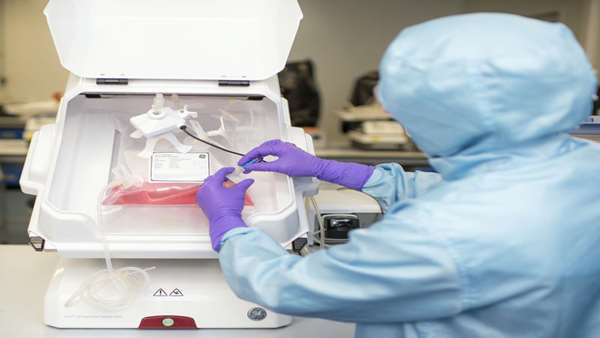Drug regulator raids 4 cell therapy makers
The pharmaceutical industry is paying keen attention to why the Ministry of Food and Drug Safety conducted an urgent inspection of four cell therapy developers.
The pharmaceutical industry is paying keen attention to why the Ministry of Food and Drug Safety conducted an urgent inspection of four cell therapy developers.
Industry sources said the ministry raided Kolon Life Science, Tego Science, Bio Solution, and Medipost at 10 a.m. Monday.
The ministry did not provide detailed reasons for the emergency inspection, but biotech industry observers speculate that the four companies could have some issues with the post-approval management system.
The four drugmakers produce allogenic cell therapies. Recently, a report by Money Today Network said the four poorly managed allogenic cell therapies.
Cell therapy is divided into two types __ autologous cell therapy and allogeneic cell therapy.
Autologous cell therapy is relatively safe and easy to manage, as the patient’s cells are extracted and cultured to be injected back to the patient.
In contrast, allogeneic cell therapy extracts cells from a donor and injects them into many other patients. As it is easy to mass-produce, many companies have rushed to develop allogeneic cell therapies. However, patients should be careful because a changed donor of cells could change the main ingredient of the treatment.
Due to such risk, the ministry has set up rules for approval of allogeneic cell therapies and post-approval management.
Approval and review regulations on biological drugs stipulate that a drug company needs a separate authorization if it uses a new strain or a different production method.
As a change of the cell donor would need a change in approval in allogeneic cell therapy, the ministry belatedly checked with the four companies to manage allogeneic cell therapies, observers said.
The four cell therapy makers said they had no problem in cell management and supervision.
Kolon Life Science said, “The company is producing therapies with the cells given from a cell bank.”
“We did not change the cell donor or add a new donor. The FDA (Food and Drug Administration in the U.S.) also recognized that our cells came from the single donor,” the company said.
Tego Science also said the company has never changed a donor since obtaining approval, emphasizing that the company’s technology had the biggest merit that the cell source did not change.
Other observers said the ministry took actions too late. Although the health authorities inspect pharmaceutical products every three years, they have never looked closely into cell therapies due to safety issues.
“In cell therapy manufacturing, it is extremely rare to allow people to enter the company. Even executives have difficulty in access,” a pharmaceutical source said. “Despite the inspections, the ministry must have been difficult to check with cell therapies in detail.”
The ministry should preemptively find out about any donor change and control it, the source said. “At the same time, the companies should report any change in the donor to the government,” he added.
Reference: http://www.koreabiomed.com/news/articleView.html?idxno=4341





ارسال به دوستان